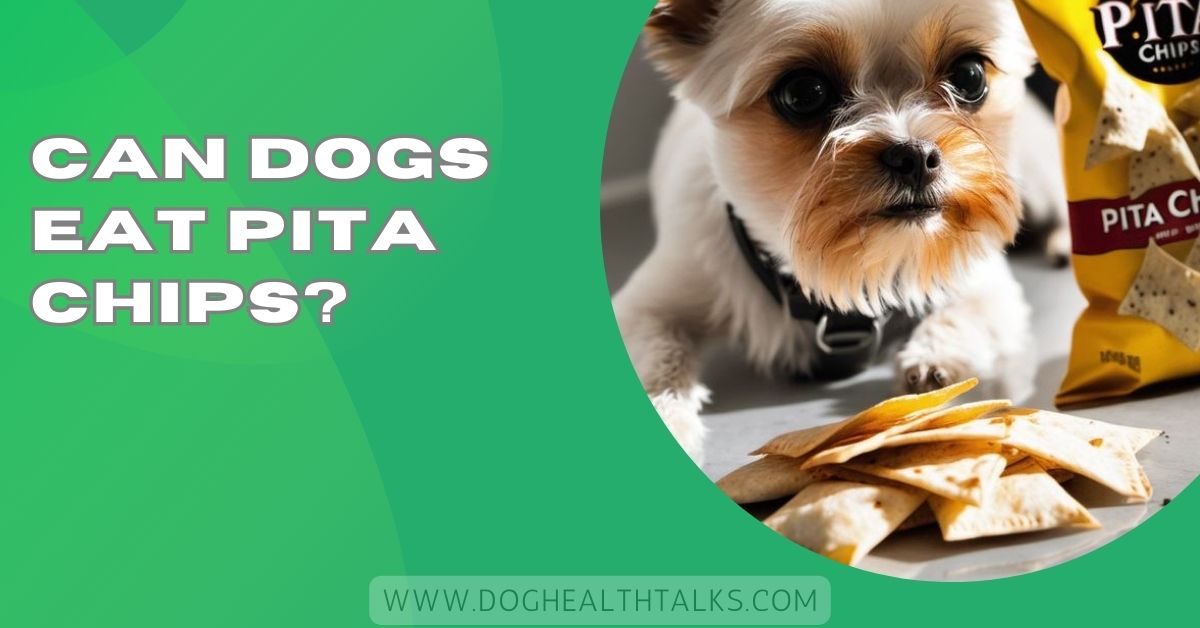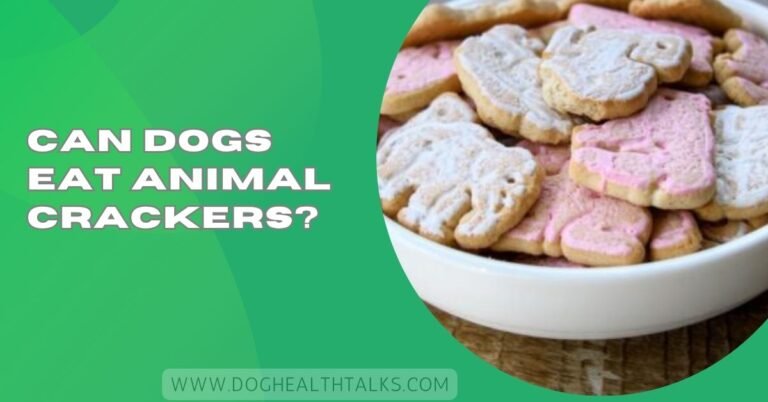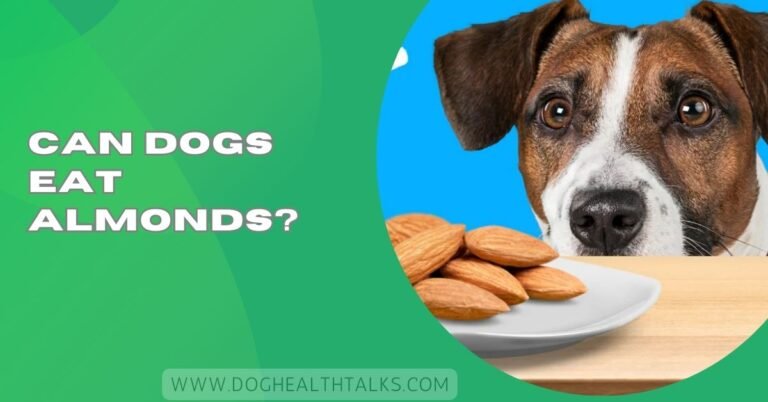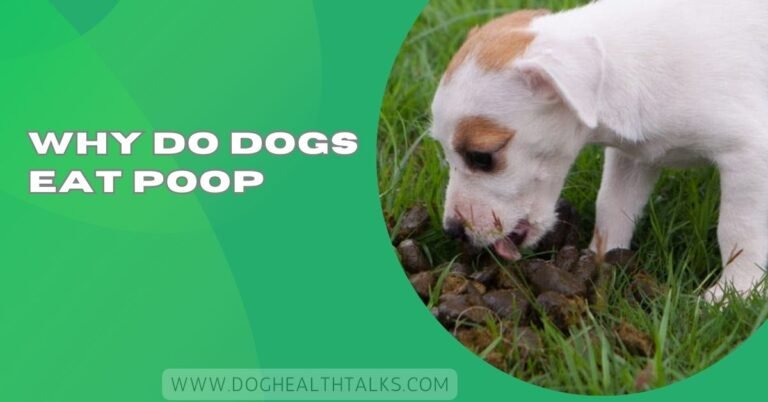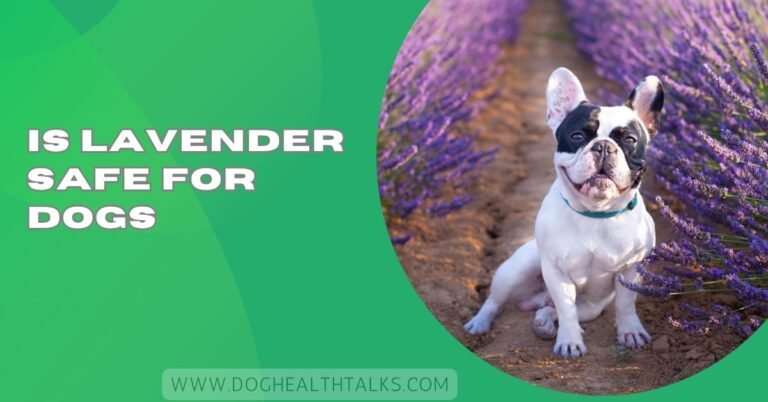Can Dogs Eat Pita Chips?: Vet-Approved Guide for Pet Parents
As a dog parent, it’s natural to wonder if sharing your favorite snacks is safe for your dog. Those curious eyes staring at your chips or bread can make it tempting to give in, but not every human food is good for dogs.
Dogs can nibble lightly salted pita chips without poisoning, but they’re not a smart snack. High in fat and carbs, lacking nutrition, and garlic-flavored varieties may be dangerous. Stick to safer, healthier treats.
This guide explains popular foods like pita, chips, and more, so you can make safe, informed choices for your furry best friend.
Are Pita Chips Healthy Snacks for Dogs?
Pita chips may taste good to us, but they’re not healthy for your dog. They’re mostly made of carbs, oil, and salt — things that don’t give your pup the nutrients they really need. Dogs do best on diets rich in protein, vitamins, and healthy fats.
A pita chip here and there won’t cause major harm, but making it a regular treat could lead to weight gain, tummy upset, or long-term issues.
If you want your dog to stay strong and happy, healthier snack options are always the safer choice.
Are Pita Chips Toxic to Dogs?

The good news is that plain pita chips aren’t toxic, so one or two won’t poison your dog. However, flavored varieties are a different story.
Many brands add garlic, onion, or heavy seasonings — all of which can be harmful and even dangerous for dogs. The salt content is another concern, as excessive sodium can lead to dehydration or stomach issues.
While your dog won’t get sick from a plain chip, it’s still better to avoid them. Safer treats, such as carrots or apples, provide your dog with both flavor and health benefits without the hidden risks.
Should Dogs Eat Pita Chips?
1. Ingredients in Pita Chips
Dogs can nibble on plain pita chips without immediate danger, but they’re not a smart snack choice.
These chips don’t offer real nutrition and often carry extra salt, oil, and seasonings that can upset your dog’s stomach.
Giving them regularly may lead to health issues over time. It’s always better to stick with safe, wholesome treats that support your pup’s long-term health and energy.
2. Nutritional Content of Pita Chips
Pita chips are made from pita bread, a staple ingredient that typically includes flour, water, yeast, and salt.
Once baked or fried, they often get coated in oil and flavored with herbs or spices. While these ingredients aren’t toxic on their own, the addition of salt, oils, and seasonings makes them less than ideal for dogs.
Processed versions can also contain preservatives and sugars, which add no health benefit to your pet.
Also Read: Can Dogs Eat Sugar? – The Truth Every Owner Should Know!
Short-term Effects of Eating Pita Chips
1. Allergies and Food Sensitivities
Some dogs are sensitive to wheat or gluten, which are found in pita bread. If your pup has an allergy, eating pita chips could trigger itching, skin irritation, or digestive issues such as gas and diarrhea.
Even small amounts may cause discomfort in sensitive dogs. If you notice any signs after your pet has received a chip, it’s best to avoid giving them more and consult with your veterinarian.
2. Gastrointestinal Distress
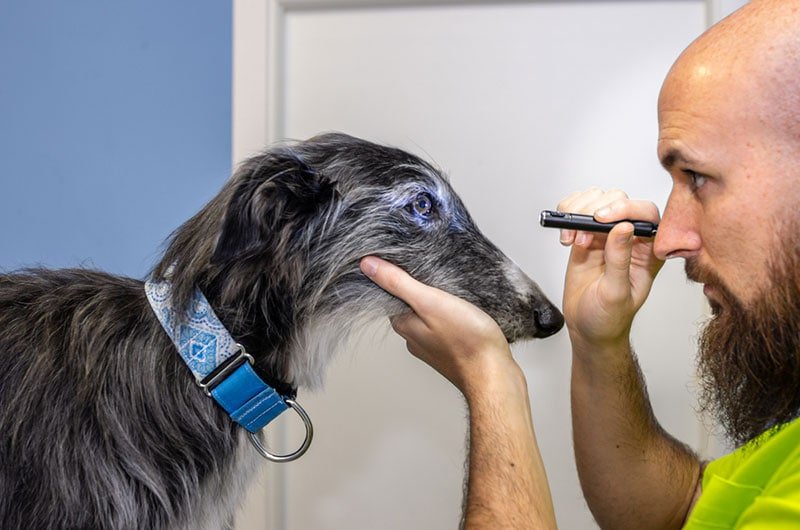
The salt, oil, and seasonings in pita chips can upset your dog’s stomach. Eating even a few chips can lead to bloating, diarrhea, or vomiting, especially in dogs with sensitive digestive systems.
While mild symptoms may subside quickly, repeated exposure can lead to ongoing discomfort.
Always watch your pup closely after they’ve snacked on human food and avoid giving them anything that makes their belly feel unsettled.
3. Fat Overload
Fried pita chips contain unhealthy fats that dogs struggle to digest. Too much fat at once can trigger pancreatitis, a painful condition that causes vomiting, diarrhea, and belly pain.
Even without immediate illness, fatty snacks put extra strain on your dog’s pancreas and liver.
It’s safest to avoid offering greasy foods altogether and instead choose low-fat, nutrient-rich treats that support your dog’s long-term health.
4. Harmful Ingredients
Flavored pita chips often contain garlic, onion, or strong spices, which are toxic to dogs. Garlic and onion can damage red blood cells and may cause anemia, especially in smaller breeds.
Even trace amounts over time can be risky. While plain chips are less dangerous, flavored ones should be completely avoided. Reading ingredient labels before sharing snacks is one of the simplest ways to keep your pup safe.
5. Artificial Preservatives and Additives
Packaged pita chips sometimes contain artificial preservatives, such as BHA or BHT, which aren’t healthy for dogs.
These chemicals may stress the liver or kidneys when eaten regularly. While one or two chips may not cause immediate harm, repeated snacking on processed foods accumulates unnecessary risks.
Offering natural, preservative-free treats instead helps keep your dog’s body safe, strong, and free from hidden chemicals that don’t belong in their diet.
Must Read: What Home Remedy Can I Give My Dog For Coughing: Guid
Long-term Effects of Eating Pita Chips
1. Obesity and Health Issues
Pita chips pack in calories without offering much in the way of nutrition, and that can quickly lead to weight gain.
Extra pounds put strain on your dog’s joints, heart, and overall energy. Obesity also raises the risk of diabetes, arthritis, and heart problems.
Sharing these snacks too often may shorten your pup’s lifespan. Choosing healthier treats helps prevent weight-related issues and keeps your dog active, fit, and happy longer.
2. Dietary Imbalance
Dogs need diets rich in protein and healthy fats, not snacks loaded with carbs and salt. Feeding pita chips too often disrupts this balance, leaving your pet with empty calories instead of essential nutrients.
Over time, this can weaken the immune system, dull the coat, and lower energy levels. Sticking to foods specifically designed for dogs ensures they receive all the necessary nutrients for strong health and vitality.
Healthier Snack Alternatives
1. Fresh Fruits and Vegetables
Crunchy fruits and vegetables, such as carrots, apples (without seeds), and cucumbers, are safe and low-calorie snacks for dogs.
They add fiber, vitamins, and hydration without the harmful effects of salt or fat. Avoid grapes, raisins, and onions. Offering these simple options gives your pup a healthy treat that also supports digestion and energy.
2. Homemade Dog Treats
Making treats at home allows you to control the ingredients and avoid preservatives. Using oats, bananas, or peanut butter creates safe and tasty snacks that your dog will love.
Homemade treats are budget-friendly, customizable, and healthier than processed foods. They’re a smart way to reward your pup while protecting long-term health and happiness.
Alternatives to Pita Chips

- Carrot sticks – Crunchy, low-calorie, and great for dental health.
- Apple slices (no seeds) – Sweet, hydrating, and full of vitamins.
- Green beans – Fiber-rich and safe to feed raw or lightly steamed.
- Cucumber slices – Refreshing, hydrating, and very low in calories.
- Pumpkin cubes – Gentle on digestion and packed with nutrients.
- Plain rice cakes (unsalted) – A light, safe crunch without harmful additives.
- Homemade dog biscuits – Freshly baked with dog-friendly ingredients.
Can Dogs Eat Pita Chips Raw
Raw pita chips aren’t safe for dogs. They’re dry, salty, and can be tough to digest, which can lead to stomach upset or dehydration.
Dogs don’t need this kind of snack, and healthier, natural treats like carrots or apples are much better choices for their health and happiness.
Can Dogs Eat Pita Chips Every Day?
Feeding pita chips daily is harmful. They contain too much salt, fat, and seasonings that can cause long-term issues like obesity, kidney strain, and digestive problems. Even small amounts add up over time.
It’s always safer to stick with natural, dog-friendly treats that are specifically made for their dietary needs.
Can Dogs Eat Hummus
Hummus is unsafe for dogs. Most recipes include garlic, onion, lemon, and high salt, all of which are harmful to pets.
Even plain hummus with chickpeas can cause digestive upset. If you want a safe option, try giving plain cooked chickpeas in moderation—they’re healthy, protein-packed, and much safer for your dog.
Can Dogs Eat Pistachios
Pistachios aren’t toxic, but aren’t recommended. They’re high in fat, often salted, and can cause stomach upset or even pancreatitis with frequent feeding.
The shells are also a choking hazard. If your dog accidentally eats a couple, it’s usually fine, but avoid offering pistachios as a regular snack.
Can Dogs Eat Spinach
Dogs can eat spinach in small amounts. It’s packed with vitamins, iron, and antioxidants, but too much may cause digestive upset or strain the kidneys due to oxalates.
Adding a few steamed or finely chopped leaves to meals can be a healthy boost without overwhelming your dog’s system.
Can Dogs Have Hummus
No, dogs should not eat hummus. It often contains garlic, onion, lemon, or salt, which can be harmful. Even small amounts may upset their stomach or cause health problems over time.
Can Dogs Have Pita Bread
Plain pita bread in very small amounts is usually safe, but it has little nutrition. Avoid giving it regularly, and don’t offer flavored or salted pita, as it can upset your dog’s stomach.
Can Dogs Eat Whole Wheat Pita Bread
Whole wheat pita bread is safer than flavored varieties, but still should be given only in tiny amounts. Too much can cause weight gain or stomach upset. Avoid butter, oil, or seasoning.
Can Dogs Eat Bread
Dogs can eat a tiny piece of plain bread occasionally. Avoid sweet, salty, or flavored bread. Bread is mostly carbs and adds no real nutrition for dogs, so it should not be a regular treat.
Can Dogs Eat Garlic
No, garlic is toxic for dogs. It can damage red blood cells and cause anemia. Even small amounts can be risky over time. Never feed garlic or foods containing garlic powder to your dog.
What Not To Feed Your Dog
Avoid feeding dogs chocolate, grapes, raisins, onions, garlic, salty snacks, fatty foods, alcohol, caffeine, or human sweets. These can make your dog sick or even be life-threatening in large amounts.
Dog Ate About 30 Garlic Herb Pita Chips
If your dog ate 30 garlic herb pita chips, call your vet immediately. Garlic is toxic, and the high salt content can cause vomiting, diarrhea, or more serious health issues. Don’t wait to act.
Can Dogs Eat Chips / Crisps?
Chips and crisps are unsafe for dogs due to high salt, fat, and seasonings. Small accidental bites may not hurt, but regular or large amounts can cause stomach upset, pancreatitis, or long-term health problems.
Holy Tongue Pita Chip?!?!
If your dog ate a pita chip, don’t panic. A tiny plain piece is usually fine. Flavored, salty, or seasoned chips can be harmful, so always check the ingredients and monitor your dog.
Pita Chip Or Pup Chip
Pita chips are not recommended for dogs. Choose dog-safe treats instead. Tiny plain pieces are unlikely to hurt, but regular human snacks can cause stomach problems, weight gain, or even toxic reactions.
Can Dogs Safely Eat Bread Or Crackers?
Dogs can eat small pieces of plain bread or crackers occasionally. Avoid salty, sweet, or seasoned types. They offer little nutrition and can cause stomach upset if given in large amounts.
Something Tells Me My Pita Bread Isn’t Safe
If your pita bread has salt, oil, or spices, it’s not safe for your dog. Only plain, small pieces are okay occasionally. Flavored bread can cause stomach upset or more serious health problems.
FAQs
1. Is Pita Okay For Dogs?
Plain pita in small amounts is generally safe, but it offers little nutritional value. Too much can upset digestion. Healthier dog snacks, such as vegetables or fruits, are better.
2. What Chips Are Safe For Dogs?
Most chips aren’t safe due to the presence of salt and oils. Instead, offer crunchy dog treats, carrot sticks, or plain rice cakes without salt—these make safer, healthier alternatives.
3. Is It Okay For Dogs To Eat Tortilla Chips?
Tortilla chips aren’t good for dogs. They’re salty, oily, and can upset the digestive system. Safer choices include plain cucumber, carrot sticks, or apple slices without seeds.
4. Are Stacy’s Pita Chips Safe For Dogs?
Stacy’s pita chips aren’t safe for dogs. They contain a high amount of salt, seasonings, and oil, which can harm digestion. Choose plain, natural treats instead of flavored chips.
5. What Is Pita Bread Made Of?
Pita bread is usually made from flour, yeast, water, and salt. While not toxic, it’s high in carbs and not beneficial for your dog’s diet.
6. What Dogs Can’t Eat Bread?
Dogs with wheat allergies, gluten sensitivity, or obesity shouldn’t eat bread. It adds empty calories and may trigger digestive problems. Always ask your vet before offering bread.
7. Can Dogs Have Chicken Fries?
Chicken fries are unhealthy for dogs. They’re fried, seasoned, and too greasy, which can upset digestion and contribute to weight gain. Plain cooked chicken is a far safer option.
8. What Chips Are Dog Friendly?
Most human chips aren’t dog-friendly. Safer choices include homemade sweet potato crisps, air-dried carrot slices, or dog treats made specifically with natural, safe ingredients.
9. Can Dogs Eat Doritos?
Dogs shouldn’t eat Doritos. They’re loaded with salt, cheese powder, and artificial flavors that may upset digestion or harm health. Stick to plain, dog-safe snacks instead.
10. Can Dogs Eat Chicken Nuggets?
Chicken nuggets aren’t safe for dogs. They’re fried, salty, and heavily processed. If you want to share, give plain boiled chicken without breading, oil, or seasoning.
Conclusion
While plain pita chips aren’t toxic, they’re far from a healthy snack for your dog. The high salt, fat, and lack of nutrients make them an empty, and sometimes risky, treat. Flavored versions with garlic, onion, or heavy seasoning can even be dangerous. Your pup deserves better fuel—nutrient-rich snacks like carrots, apples, or homemade dog treats keep them happy, strong, and safe. When it comes to sharing human food, always think twice. A little extra caution today helps your furry best friend enjoy a longer, healthier life by your side.
